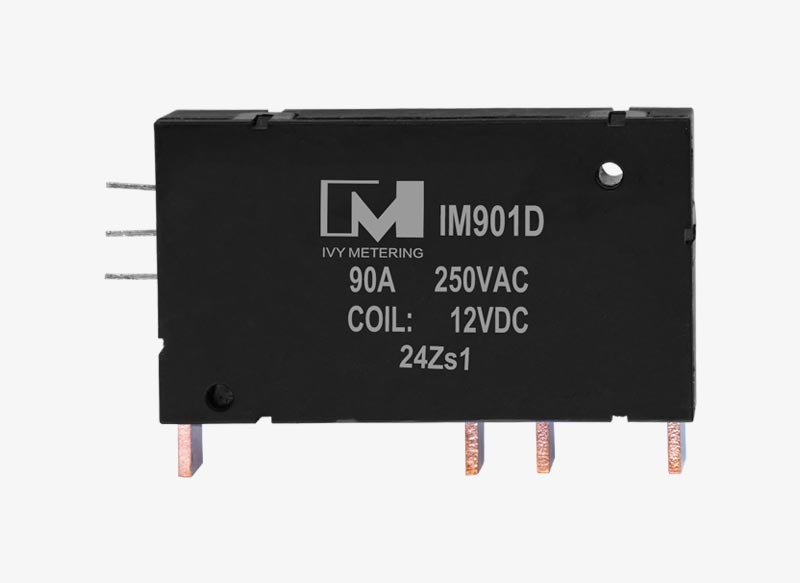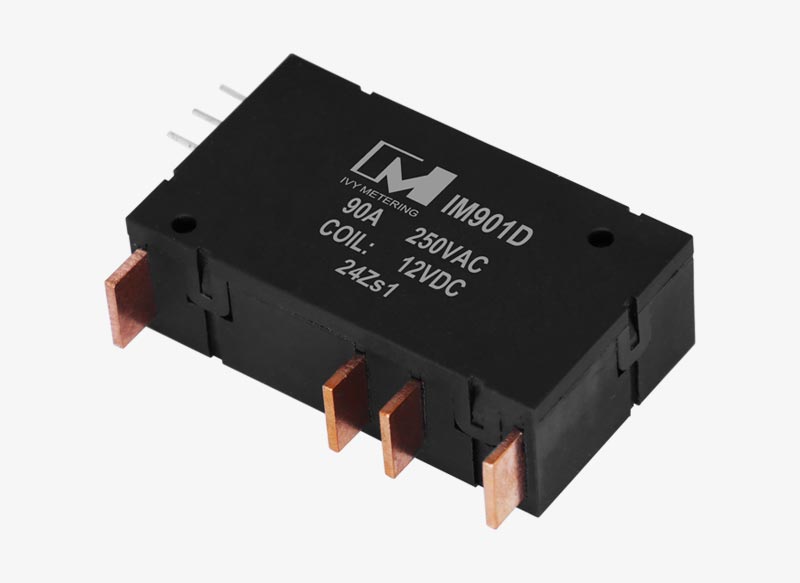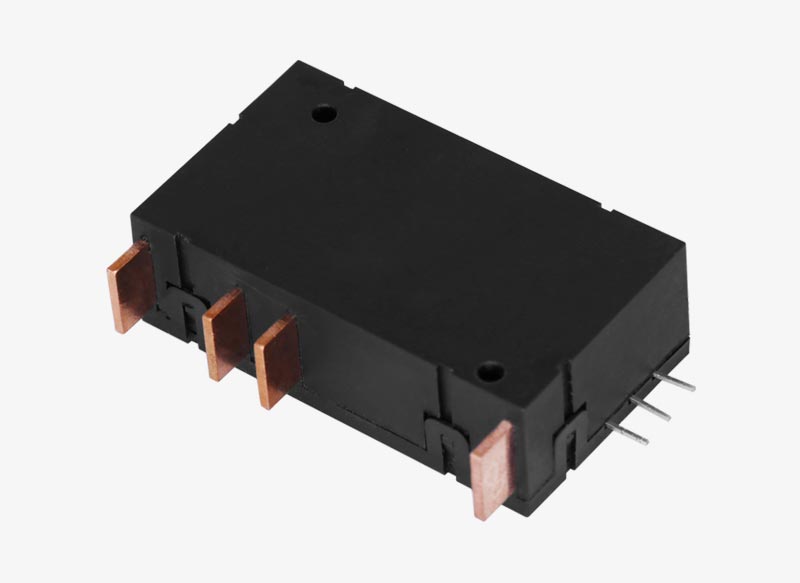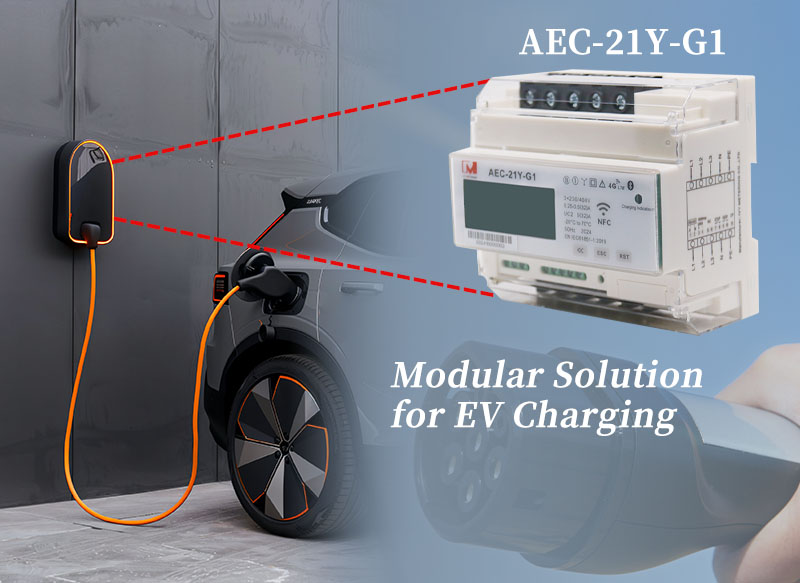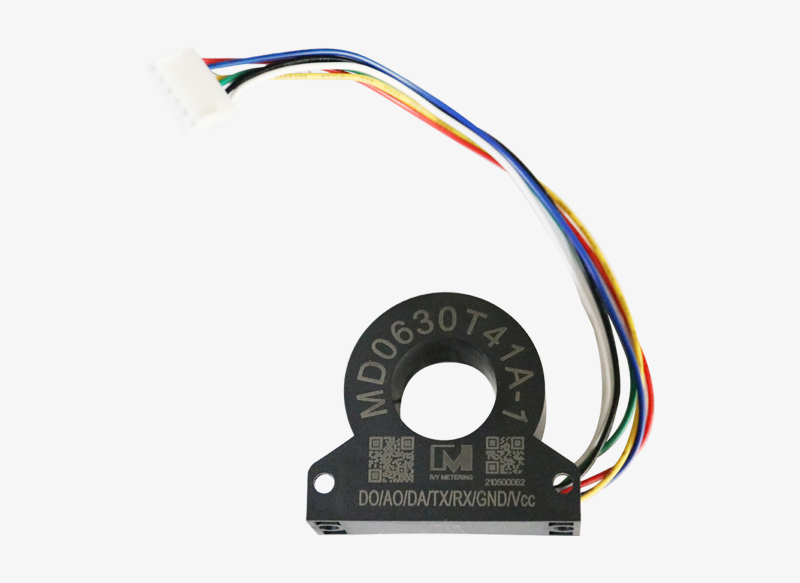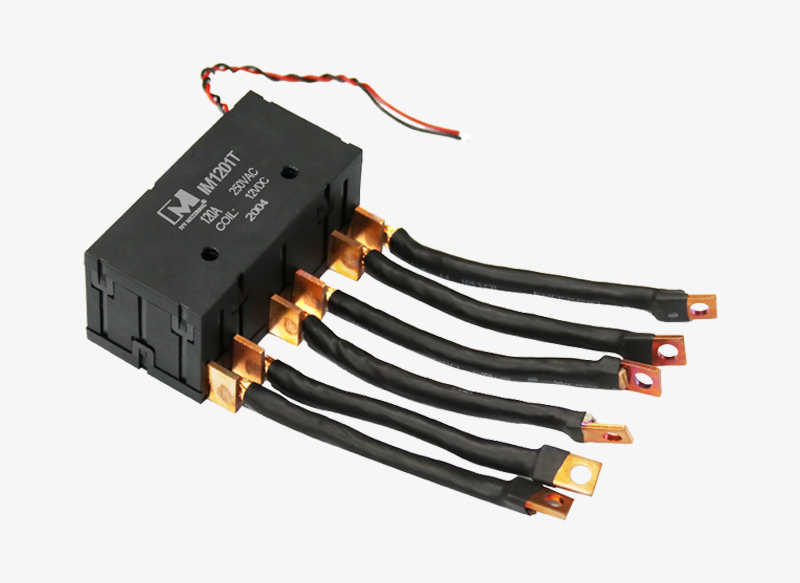IM901D Bistable Relay
This is a new product---80A/90A dual-phase magnetic latching relay. Even smaller, but just as powerful. The IM901D relay is the consistent further development in the IVY double pole relay series. With its outstanding features and modular design principle, the polarized bistable relays cover a variety of energy management functions, such as load control, supply control, prepayment, etc.
Its outstanding advantages are the following several points:
1.Price: best cost-effective, one 2-pole IM901D relay < two 1-pole relays
2.Low contact resistance: 100% Guaranteed ≤0.8mΩ, Batch testing: 0.3mΩ
3.Small in size: 60*34.5*19mm
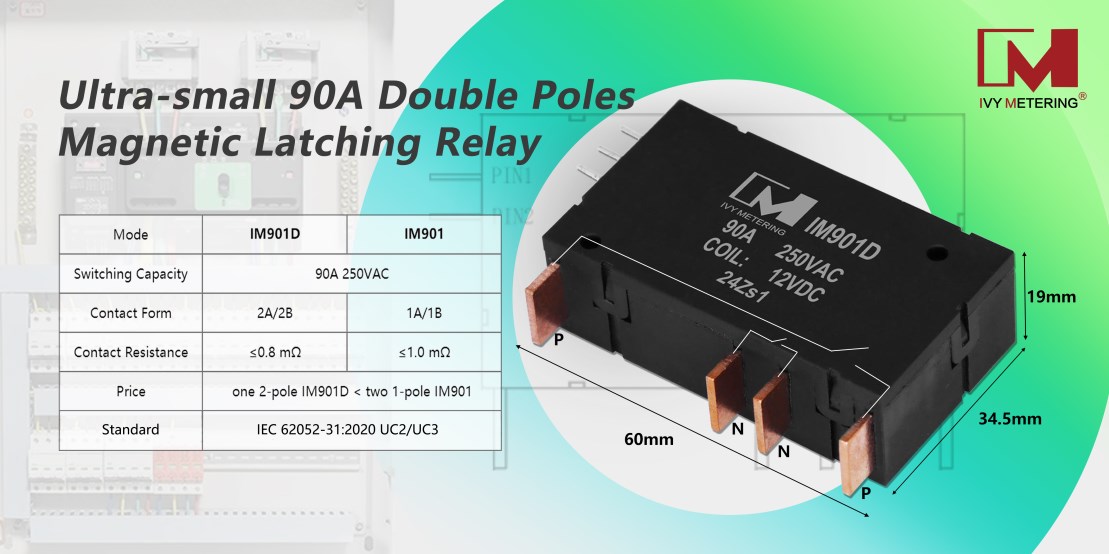
IM901D Product Features
Dual-pole magnetic latching relay - (PNNP TYPE)
Maximum contact switching capacity: 90A,250VAC
Meets IEC 62052-31:2020 UC2
Instantaneous on and off, low contact resistance
Small size, high cost performance
Custom assemblies available with flexible wire and/or copper straps, and/or with integrated shunt
Only impulse excitation needed, both for single and double coil
Product Dimension
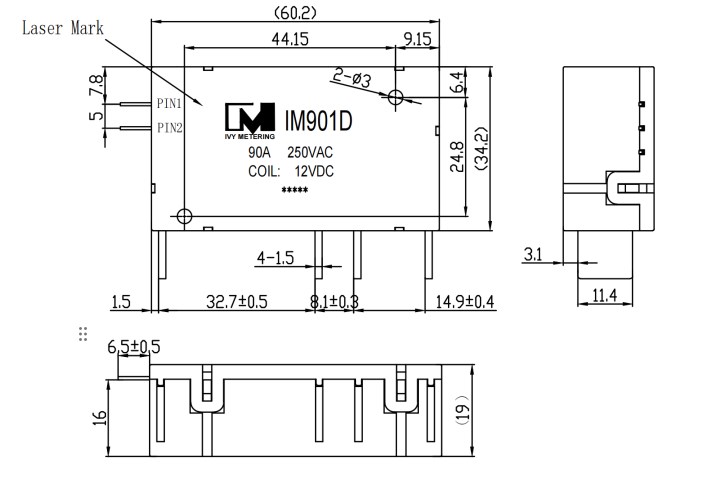
Single-phase two-wire Meters: If you need to switch the live and neutral wires on and off at the same time, the traditional method is to use two single-phase relays, but it cannot guarantee simultaneous disconnection. Using one dual-pole relay can replace the traditional solution.
Design difficulty: dual-pole > single-pole
Product price: 1 dual-pole < 2 single-pole
Simultaneous switching: 1 dual-pole √ 2 single-pole ×








